Childhood development is a critical phase that lays the foundation for a healthy and successful life. Proper nutrition plays a pivotal role in supporting the physical, cognitive, and emotional growth of children. While a well-balanced diet is essential, there are instances where children may require additional supplements to meet their nutritional needs. This essay explores the best supplements for kids, delving into the importance of each and their impact on childhood development.
I. Essential Vitamins and Minerals: Building Blocks for Growth
A. Vitamin D: The Sunshine Vitamin
Vitamin D is crucial for the development of strong bones and teeth. Known as the "sunshine vitamin," it is primarily synthesized through exposure to sunlight. However, factors such as indoor activities and seasonal variations can lead to deficiencies. Supplements become imperative to ensure that children receive adequate amounts of vitamin D, supporting bone health and overall immunity.
B. Omega-3 Fatty Acids: Nourishing the Brain
Omega-3 fatty acids, particularly EPA (eicosapentaenoic acid) and DHA (docosahexaenoic acid), are essential for brain development and function. These fatty acids are found in abundance in fatty fish, but many children may not consume enough of these foods. Omega-3 supplements can bridge this nutritional gap, promoting cognitive development and enhancing learning abilities.
II. Supporting Cognitive Function: The Role of Iron and Zinc
A. Iron: Fueling Cognitive Potential
Iron is a vital mineral that supports the production of hemoglobin, the protein responsible for carrying oxygen in the blood. Adequate iron levels are crucial for cognitive development, as the brain requires oxygen to function optimally. Iron deficiency in children can lead to cognitive delays and impaired learning abilities. Iron supplements may be recommended in cases of insufficient dietary intake or conditions like anemia.
B. Zinc: Boosting Memory and Attention
Zinc is another micronutrient essential for childhood development. It plays a critical role in supporting immune function, wound healing, and, notably, cognitive processes. Zinc deficiency has been linked to memory and attention deficits in children. Supplements can help address zinc deficiencies, contributing to enhanced memory, attention, and overall cognitive function.
III. Ensuring Growth and Development: Calcium and Vitamin K
A. Calcium: Building Strong Bones and Teeth
Calcium is a fundamental mineral for the development of strong bones and teeth. Childhood is a period of rapid bone growth, making calcium intake crucial during this phase. While dairy products are primary sources of calcium, some children may have dietary restrictions or lactose intolerance. Calcium supplements provide an alternative, ensuring that children attain the necessary levels for optimal bone health.
B. Vitamin K: Coordinating Blood Clotting and Bone Health
Vitamin K is essential for blood clotting and bone metabolism. It aids in the production of proteins necessary for both processes. While vitamin K is naturally present in green leafy vegetables, children with limited dietary variety may benefit from supplements. Ensuring sufficient vitamin K levels is vital for preventing excessive bleeding and promoting healthy bone development.
IV. Immune System Support: Vitamin C and Zinc
A. Vitamin C: Strengthening the Body's Defense
Vitamin C, also known as ascorbic acid, is renowned for its immune-boosting properties. It plays a crucial role in the production of collagen, a protein that supports the skin, blood vessels, and connective tissues. Additionally, vitamin C enhances the absorption of iron from plant-based foods. While fruits and vegetables are rich sources, vitamin C supplements can be valuable in maintaining a robust immune system, especially during seasons when fresh produce may be less accessible.
B. Zinc: Guardian of the Immune System
Zinc's immune-boosting properties extend beyond cognitive function. It plays a pivotal role in the development and function of immune cells. Zinc deficiency can compromise the body's ability to fight infections, making supplementation essential, especially in cases of inadequate dietary intake or conditions that hinder zinc absorption.
V. Navigating Special Diets: Vitamin B12 and DHA
A. Vitamin B12: Crucial for Neurological Function
Vitamin B12 is essential for the development and maintenance of the nervous system. It is primarily found in animal products, and children following vegetarian or vegan diets may be at risk of deficiency. Vitamin B12 supplements ensure that these children receive adequate levels of this vital nutrient, supporting neurological function and preventing complications associated with deficiency.
B. DHA: The Importance of Essential Fatty Acids
Docosahexaenoic acid (DHA), an omega-3 fatty acid, is crucial for brain and vision development. While fish is a rich source of DHA, some children may not consume enough or may have dietary restrictions. DHA supplements provide a convenient way to support the development of the nervous system and visual acuity, contributing to overall well-being.
Conclusion:
In conclusion, childhood development is a complex process that requires optimal nutrition to ensure physical, cognitive, and emotional well-being. While a balanced diet should be the cornerstone of a child's nutrition, supplements play a vital role in addressing specific needs and potential deficiencies. The best supplements for kids target key vitamins and minerals essential for growth, cognitive function, immune support, and overall health. However, it is crucial to consult with healthcare professionals before introducing any supplements to a child's diet to ensure appropriateness and proper dosages. By understanding the importance of these supplements, parents and caregivers can contribute to the holistic development of children, setting the stage for a healthy and prosperous future.


